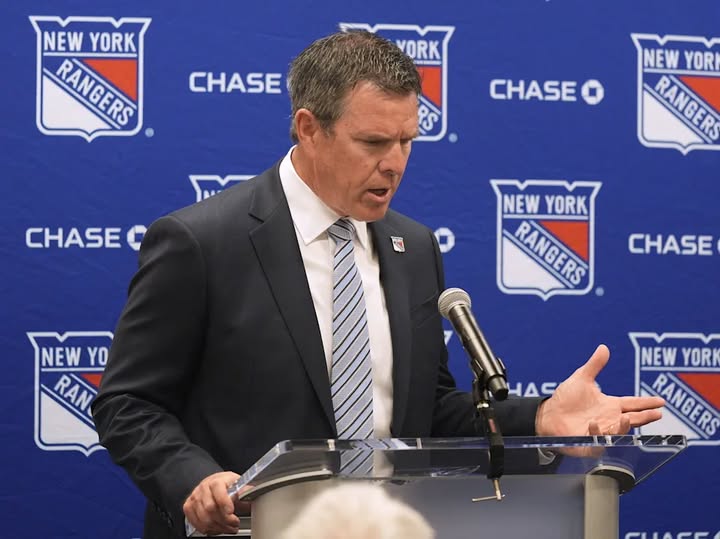The Pittsburgh Penguins are at a crossroads. After missing the playoffs for the second consecutive season, questions loom over whether their championship window has finally closed. Sidney Crosby, Evgeni Malkin, and Kris Letang aren’t getting any younger, yet their elite play suggests the core still has one more run left—if the right adjustments are made. Enter Mike Sullivan, the two-time Stanley Cup-winning coach who now faces his toughest challenge yet: reviving a team caught between its illustrious past and an uncertain future.
To find the blueprint for success, Sullivan need look no further than Paul Maurice, the veteran coach who led the Florida Panthers to the 2024 Stanley Cup Final after years of near-misses. Maurice’s transformation of the Panthers from a high-octane, defensively lax squad into a structured, resilient champion offers a masterclass in adapting to a team’s evolving needs. If Sullivan can channel Maurice’s formula—balancing offensive firepower with defensive accountability, managing veteran legs, and instilling a relentless identity—the Penguins might just have one last dance in them.
The Panthers under Maurice didn’t abandon their aggressive, skilled style—they refined it. Florida still relied on Aleksander Barkov, Matthew Tkachuk, and Carter Verhaeghe to drive offense, but Maurice implemented a more structured defensive system that prioritized backchecking, shot suppression, and goaltender support. The result? A team that remained dangerous offensively but no longer bled high-danger chances.
Sullivan’s Penguins have long been a possession-driven, speed-based team, but in recent years, their defensive breakdowns and inconsistent effort have cost them. The solution isn’t to abandon their attacking DNA but to reinforce their structure. Pittsburgh’s forwards—particularly their star-studded top six—must commit to a more responsible two-way game. Crosby and Malkin have shown they’re still capable of elite defensive play, but the supporting cast (Jake Guentzel, Reilly Smith, and newcomers like Lars Eller) must follow suit.
Maurice’s Panthers also excelled at controlled breakouts, reducing risky stretch passes in favor of short, supportive exits. The Penguins, often turnover-prone in transition, could benefit from a similar adjustment. A more deliberate approach to zone exits would limit odd-man rushes against, a persistent weakness in recent seasons.
One of Maurice’s most underrated achievements in Florida was managing his veterans’ minutes to keep them fresh for the playoffs. Barkov, Tkachuk, and even older contributors like Sergei Bobrovsky saw their workloads carefully monitored during the regular season, ensuring they peaked when it mattered.
Sullivan must take a similar approach with Crosby (36), Malkin (37), and Letang (37). While all three remain remarkably durable, their minutes—particularly in high-leverage situations—should be optimized. Reducing their penalty-killing duties, limiting back-to-back appearances, and deploying a deeper forward rotation (rather than over-relying on the top six) could pay dividends in April.
The Panthers also thrived by integrating younger, energetic role players (Anton Lundell, Eetu Luostarinen) to supplement their stars. The Penguins’ prospect pool isn’t deep, but if Sullivan can find reliable minutes from bottom-six youth (Drew O’Connor, Valtteri Puustinen) or shrewd acquisitions (Noel Acciari), it would ease the burden on the core.
Perhaps Maurice’s greatest impact in Florida was instilling a hardened, battle-tested mindset. The Panthers of 2023-24 weren’t just skilled—they were relentless, physical, and unshakable in tight games. They embraced the grind, something the Penguins have struggled with in recent playoff misses.
Pittsburgh’s roster isn’t built to outmuscle opponents, but Sullivan can foster a similar mentality by emphasizing puck battles, net-front presence, and disciplined aggression. The Panthers didn’t win solely on talent; they won because they outworked teams shift after shift. The Penguins, for all their skill, have too often been outcompeted in key moments.
Adding more sandpaper to the lineup (like Acciari and Ryan Graves) helps, but the real change must come from within. Crosby’s leadership ensures effort is rarely an issue, but the entire group must adopt a more playoff-style approach early in the season. Maurice’s Panthers played every regular-season game with postseason intensity—Sullivan’s Penguins must do the same.
Sergei Bobrovsky’s resurgence was pivotal to Florida’s Cup run, but Maurice’s system ensured he wasn’t facing an onslaught nightly. The Panthers tightened their defensive-zone coverage, blocked shots aggressively, and limited second-chance opportunities.
The Penguins’ goaltending duo of Tristan Jarry and Alex Nedeljkovic is capable but inconsistent. Sullivan can’t afford to leave them exposed as often as he has in recent years. A more structured defensive approach—particularly from the defensemen—would go a long way. Kris Letang and Erik Karlsson are elite puck-movers, but they must prioritize defensive reliability over high-risk plays.
Maurice also didn’t hesitate to ride the hot hand in net. If Jarry or Nedeljkovic catches fire, Sullivan must be willing to lean on them heavily down the stretch, as Maurice did with Bobrovsky.
Paul Maurice’s Panthers believed—even when others doubted. After years of playoff disappointments, they embraced the underdog role and played with a chip on their shoulder. The Penguins, once the NHL’s gold standard, now find themselves in a similar position: written off, aging, but still dangerous.
Sullivan’s task is to reignite that belief. He must convince Crosby, Malkin, and the rest of the room that the Cup is still within reach—if they’re willing to adapt. Maurice proved that even in a league increasingly dominated by youth, veteran teams can still win when coached to their strengths.
The blueprint is there. Now, it’s up to Sullivan to follow it. If he does, the Penguins may yet script one final, glorious chapter to their dynasty.



